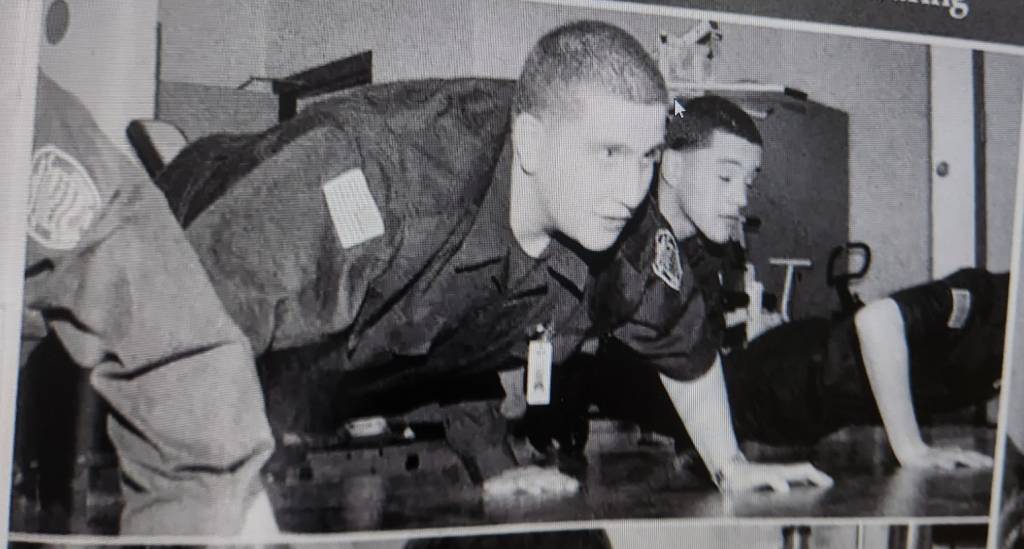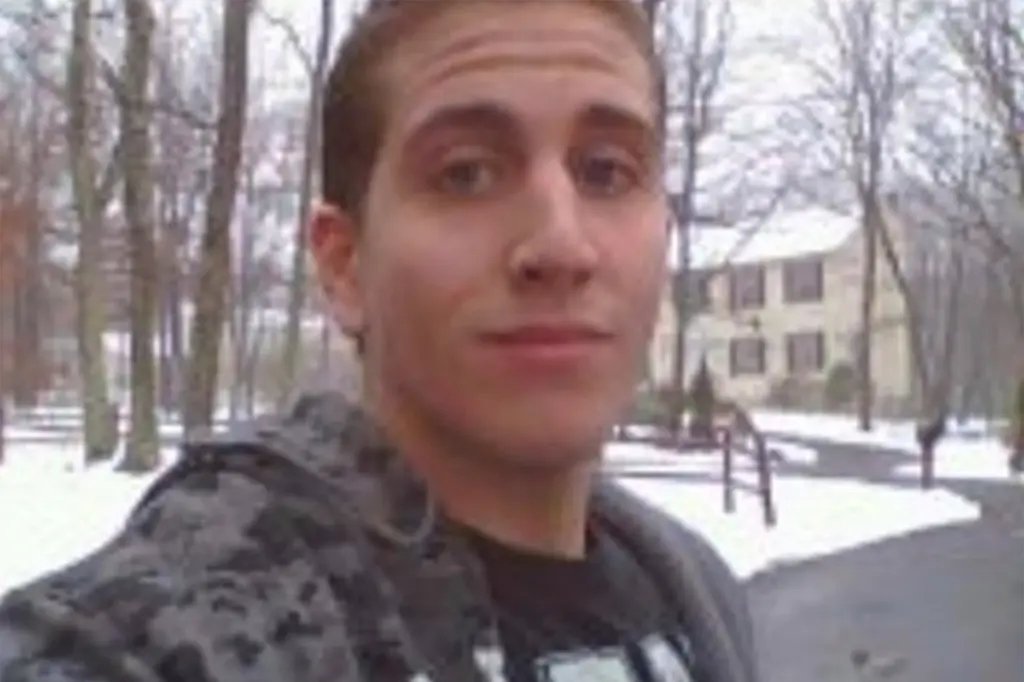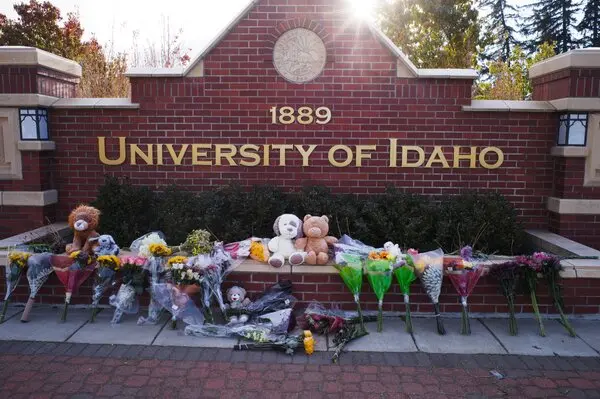Adolf Hitler, Lee Oswald, Charles Manson, Pol Pot and Idi Amin have all earned the civilized world’s enmity. We loathe der Führer et al. for good reason, but it must be kept in mind that early on they were their mamas’ darling boys. Only later did they come to seem the devil incarnate, and it is the same with the man who is today the premier object of revulsion, abhorrence and execration in America. I refer to inmate No. 163214, residing in J block (the restrictive housing unit) of Idaho’s Supermax prison. At his climactic hearing last July, Judge Steven Hippler said that before sentencing a person he always tries to find some humanity, some redeeming value, but that the orange-clad defendant in his courtroom who had confessed to being a quadruple murderer appeared to possess nothing of the sort.
Hey, I detest him too! The fact that he endures 23 hours per day of solitary, is only allowed out of his cell in restraints, showers on alternating days, eats the blandest kind of institutional food—heavy on the starch, as this is the land of potatoes—imaginable and listens to taunts and threats from other prisoners is what he signed up for when he terminated the vibrant lives of University of Idaho students Maddie Mogen, Kaylee Goncalves, Ethan Chapin and Xana Kernodle between 4:00 and 4:25 a.m. on November 13, 2022. His motive has been speculated on endlessly. The explanation I have heard most often is that inmate No. 163214, who had just begun work on a doctorate in criminology at Washington State University, thought he could commit the “perfect crime.” While I find this unconvincing, I cannot come up with anything better.
I realize that in the preceding weeks, inmate No. 163214 had driven his now-infamous white Hyundai Elantra by the three-level house at 1122 King Road numerous times—casing the joint, as it were. Whatever was going through his mind, until opening the sliding glass door and entering that morning, he could have had an epiphany. He could have realized the utter madness of his plan, made a 180-degree turn and gone back to his Wazzu campus apartment, tossing out his Ka-Bar knife along the way. That inmate No. 163214 did not is a source of profound sorrow and bewilderment to the victims’ families and friends, to the two universities involved, to his own family and to strangers in distant lands—me, for example.
He was born on November 21, 1994 and lived in four small towns in the Pocono Mountains north of Philadelphia: Effort, Brodheadsville, Bartonsville and Albrightsville. The latter is where at 3 a.m. on December 30, 2022, about 50 heavily armed law enforcement officers barged into the family home and put inmate No. 163214 under arrest. He told the cops as well as his parents Maryann and Michael, and sisters Melissa and Amanda that he had nothing to do with the murders in far-off Moscow, Idaho. His well-scrubbed Hyundai, which he had driven cross-country with his father, was parked outside.
Maryann assisted a teacher of special-needs students at Pleasant Valley High School, from which her son graduated in 2013. Michael was employed there also, as a maintenance worker. Inmate No. 163214, while above average in intelligence, struggled socially. Making friends was difficult if not impossible because he had some form of autism; not until well into his incarceration was he diagnosed. I think the root of his problems was Asperger syndrome. People with that disorder have trouble with social interaction and nonverbal communication, and they tend to lack empathy. Whether in eastern Pennsylvania or 2,500 miles away in eastern Washington, inmate No. 163214 failed to make even the most basic human connections. It seems that he never had a single real friend. Girlfriends? Never. He was as much an incel (“involuntary celibate”) as Elliot Rodger. He had a long history of awkward, unwanted interactions with women. Even if his intentions were good—and surely sometimes they were—he tended to freak people out.
For this part of his life, I genuinely sympathize with inmate No. 163214. Lonely and tormented, he was overweight and bullied, then proceeded to lose 100 pounds and turned into a bully himself. He developed a heroin addiction before cleaning up and getting in shape so he could become an Army Ranger. That did not work out, but he did attend Monroe Career and Technical Institute in Bartonsville, hoping to get into law enforcement. After just a year, however, he was expelled for some indiscrete misbehavior. With all his limitations, inmate No. 163214 managed to make something of himself academically, earning an associate’s degree in psychology at Northampton Community College and then a bachelor’s in psychology and a master’s in criminal justice at DeSales University.
Thus he was accepted into a Ph.D. program at Washington State. (I will pause here and say that nothing else in the 135-year history of the school could have damaged its “brand” as much as this. Administrators, professors, alumni and students must rue the day he pulled into town.) In the short time he was a student and teaching assistant, inmate No. 163214 was having problems as well as causing them. He must have seen the writing on the wall, that he was not going to get a doctorate at Wazzu. One of his jobs in Pennsylvania was that of a security guard, which may have looked like his future as soon as his superiors in Pullman told him to get out. And that, from what I can tell, was just a matter of time given that 13 female students and colleagues had filed complaints against him in three short months.
I am not the first person to wonder whether life has imitated art in the form of Two Days Back, a low-budget horror movie filmed at the Penn State University Mont Alto campus and surrounding areas in 2011. At that time, the life of inmate No. 163214, a junior at Pleasant Valley High School, was one big roller-coaster. His sister Amanda, perhaps dreaming of Hollywood stardom, played Lori. She and other students went innocently hiking in the woods only to be stabbed, slashed and hacked to death by some maniac who did not even know them. Whether this “inspired” inmate No. 163214 to perform his awful deed 11 years later, who knows? What’s clear is that he was guided by twisted impulses that became actions, leading to his undoing—not to mention those of Maddie, Kaylee, Ethan and Xana.







4 Comments
Somewhat different from your prior article, but I found it contained much more than the first. It is as if there was some introspection there. It brought forward more about his life, which I found interesting. I like to understand, but this does not lend itself to such. It does not seem to be the family’s fault.
This crime has been well digested by now, but continues to resurface as cud. We continue to try and understand it. Regardless, it is still difficult to imagine how to inflict enough pain on a man such as that. I guess to leave him alive in a prison for the rest of his life would be a start. Although the death penalty might seem preferable, he will suffer more in prison for 30 or 40 years than he will thinking about the needle for a few months or years. Death is the loser’s easy way out on a crime such as this.
You said it well, Boyd. The story just won’t go away. I have promised that, after two articles, I will say no more in public. It’s endlessly perplexing….
Oh wow, Richard, so heart-wrenching and seamlessly written on a most difficult topic. Lately, with all the acdts of violence, I am given to pray not only for the victims and their families, but for the perpitrators and their families. We go so wrong so fast. One wrong turn sometimes for some, or a life of layer upon layer of abuses. God forgive us all.
So very, very sad. I do feel for all involved. I wonder if he ever got any help growing up, you know his parents dealt with his actions growing up. I read a book when I was young by Erma Bombeck about motherhood. Very funny book that touched on all types of children and mothers. But the last chapter was about the mother of a criminal, and no matter the crime, that person is still your child and you still love them. But what you have to deal with from people. Never forgot that. Do criminals that are sentenced to life have the right to pick the needle instead? I wonder. Thanks Richard, sorry for late reply.
Add Comment